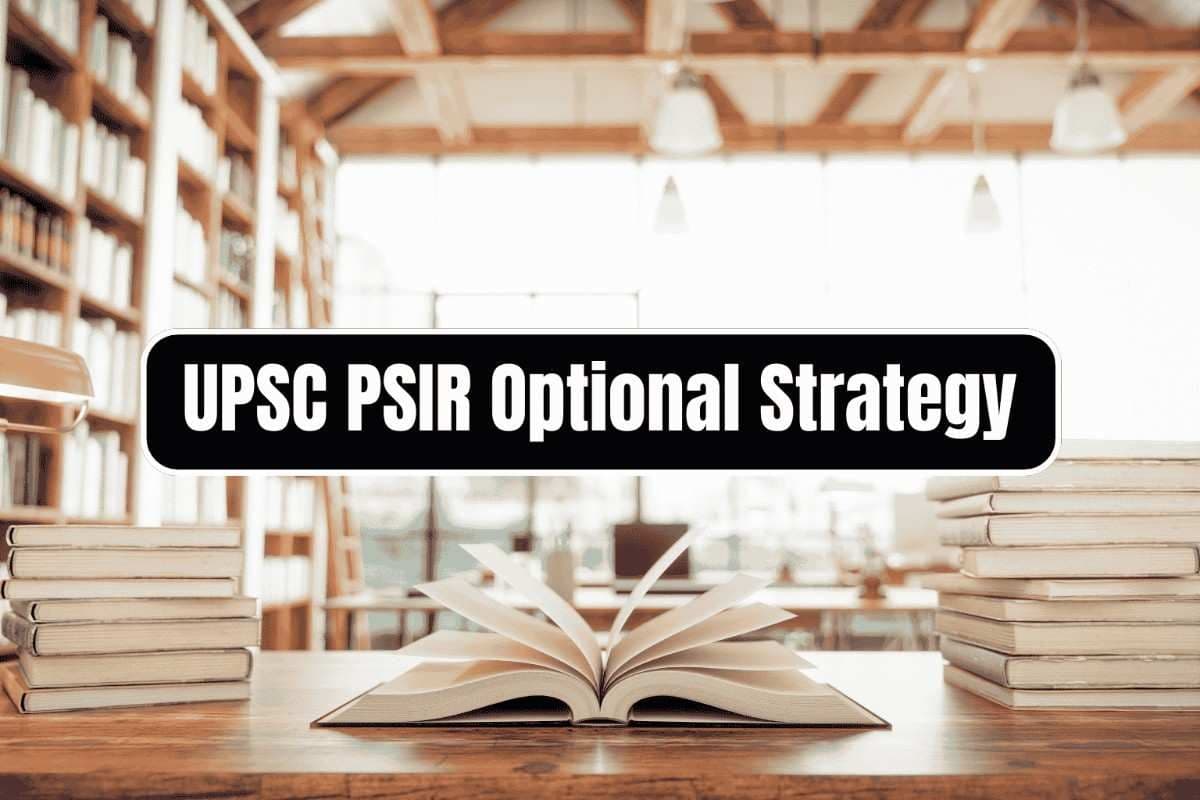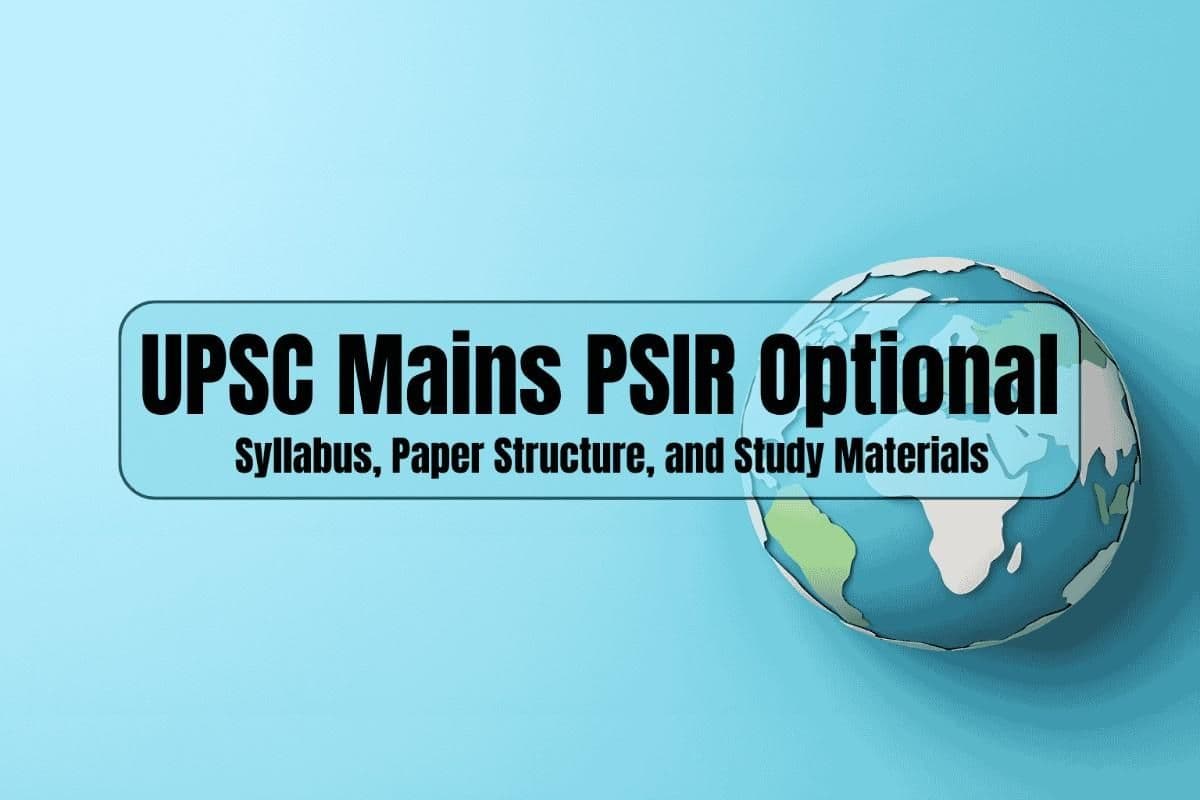Ideal UPSC Optional Preparation Timetable for IAS Aspirants
Oct, 2025
•4 min read
The UPSC Optional paper often decides who makes it to the final list and who misses by a few marks. The difference isn’t just about knowledge. It’s about how smartly and consistently you prepare.
Every topper you admire has a disciplined timetable and a well-thought-out strategy for their optional subject. If you can build that same rhythm, 300+ in Optional is achievable.
In this guide, we’ll walk you through a practical preparation timetable and toppers’ insights that will help you turn your Optional into your strongest paper for the UPSC Mains.
UPSC Optional in Mains: The Real Rank-Deciding Factor
The UPSC Optional paper plays a crucial role in determining your final rank in the Civil Services Examination. It carries 500 marks (two papers of 250 marks each). Here’s why your UPSC Optional preparation deserves special focus:
- High Scoring Potential: Compared to GS papers, optional subjects allow deeper conceptual clarity and more predictable performance if prepared well.
- Rank Booster: A strong Optional score (300+) can instantly lift your overall rank, even if GS scores are average.
- Better Time Management: A structured Optional preparation timetable helps balance GS, Essay, and CSAT without mental fatigue.
- Subject Overlap Advantage: Popular subjects like Geography, Sociology, PSIR, and Anthropology overlap with GS papers, reducing overall preparation time.
- Conceptual Depth: Studying one subject in depth improves analytical and answer-writing skills across Mains papers.
- Stability and Predictability: Unlike current affairs-heavy GS papers, Optional papers reward consistency and a strong conceptual foundation.
Mastering your UPSC Optional subject is building the edge that defines top-rankers every year.
Must read: Scoring Top Optional Subjects for UPSC Mains Exam
Ideal UPSC Optional Preparation Timetable
The Optional syllabus is vast, conceptual, and analytical. It demands regular revision and practice-based learning. A smart timetable ensures you cover the syllabus on time, revise effectively, and balance GS and Optional without burnout.
Your timetable is a personal blueprint that guides you through preparation in a steady, stress-free, and confident manner.
3-Phase UPSC Optional Preparation Timetable (3–4 Months Plan)
This plan assumes you’re simultaneously preparing for GS papers. You can adjust the duration based on your pace and familiarity with the subject.
Mentor Tip: Don’t chase perfection in the first read. Aim for understanding. The first cycle builds familiarity; mastery happens during revision and answer writing.
Daily Schedule Example (4–5 Hours for Optional)
A simple daily routine can make your UPSC Optional preparation consistent and effective:
- 2 hours – Build concepts and strengthen fundamentals.
- 2 hours – Read topics and make concise notes.
- 1 hour – Practice previous year questions.
- 1 hour – Answer writing practice to improve speed and structure.
Mentor Tip: Focus on consistency and understanding rather than long hours — even 4 focused hours daily can give excellent results.
How to Balance UPSC Optional with GS and Essay
Balancing Optional, GS, and Essay preparation is crucial for an effective UPSC strategy. Here’s a practical approach:
- Daily Focus: Dedicate 4–5 hours each day to your Optional preparation, increasing hours on weekends if needed.
- Weekly Test Day: Reserve one day per week entirely for Optional practice and test-based revision.
- Integrate GS: Link current affairs and GS topics with your Optional notes wherever possible to save time and reinforce learning.
- Mains Phase Strategy: As exams approach, shift your focus to 70% Optional and 30% GS, ensuring both are well-prepared without neglecting either.
Smart integration and consistent scheduling prevent burnout and maximise your scoring potential across all papers.
Must read: How to Choose and List of Optional Subjects in UPSC Mains
Common Mistakes to Avoid in UPSC Optional Preparation
Even the most capable aspirants can lose precious marks due to avoidable mistakes. Being aware of these pitfalls can save you months of wasted effort:
- Starting Optional Late: Delaying your Optional preparation reduces time for proper understanding, revision, and answer writing.
- Neglecting Paper II: Many aspirants focus solely on Paper I. Remember, both papers carry equal weight, and ignoring one can drastically affect your score.
- Skipping Revision or Answer Writing: Without regular revision and structured answer practice, concepts fade, and writing speed suffers.
- Switching Subjects Midway: Changing your Optional due to peer pressure or trends wastes time and hampers conceptual continuity. Stick to a subject that aligns with your interests and strengths.
Join the SuperKalam student community on Telegram of over 10,000 UPSC aspirants just like you! Access valuable resources like:
- Handwritten notes
- Mind maps
- Daily targets and more!
Final Advice
Every UPSC Optional subject has its own unique challenges, for instance:
- Geography demands diagrams and map practice.
- Sociology requires a deep understanding of thinkers and examples.
- Political Science & IR needs conceptual clarity and current affairs integration.
Toppers' advice that “Consistency, not hours, wins. Small daily progress and regular answer practice build rank-winning Optional scores.”
Remember, your UPSC Optional is the opportunity to turn your preparation into a rank-winning advantage. Choose wisely, prepare smartly, and trust the process.
SuperKalam is here to be your personal mentor throughout your UPSC journey. With personalised guidance and 24/7 support, SuperKalam helps you stay on track and manage your prep efficiently!
It's UPSC made simpler for you! Join now!
Crack UPSC with your Personal AI Mentor
An AI-powered ecosystem to learn, practice, and evaluate with discipline
Download Now
Related Blogs

UPSC PSIR Optional Strategy 2026: Best Study Plan, Topper Insights & Success Tips for Scoring 300+
Aug, 2025
•4 min read

How to Prepare Sociology Optional for UPSC – Best Strategy & Study Plan
Aug, 2025
•6 min read

UPSC Mains PSIR Optional Syllabus, Paper Structure, and Study Materials
Aug, 2025
•4 min read